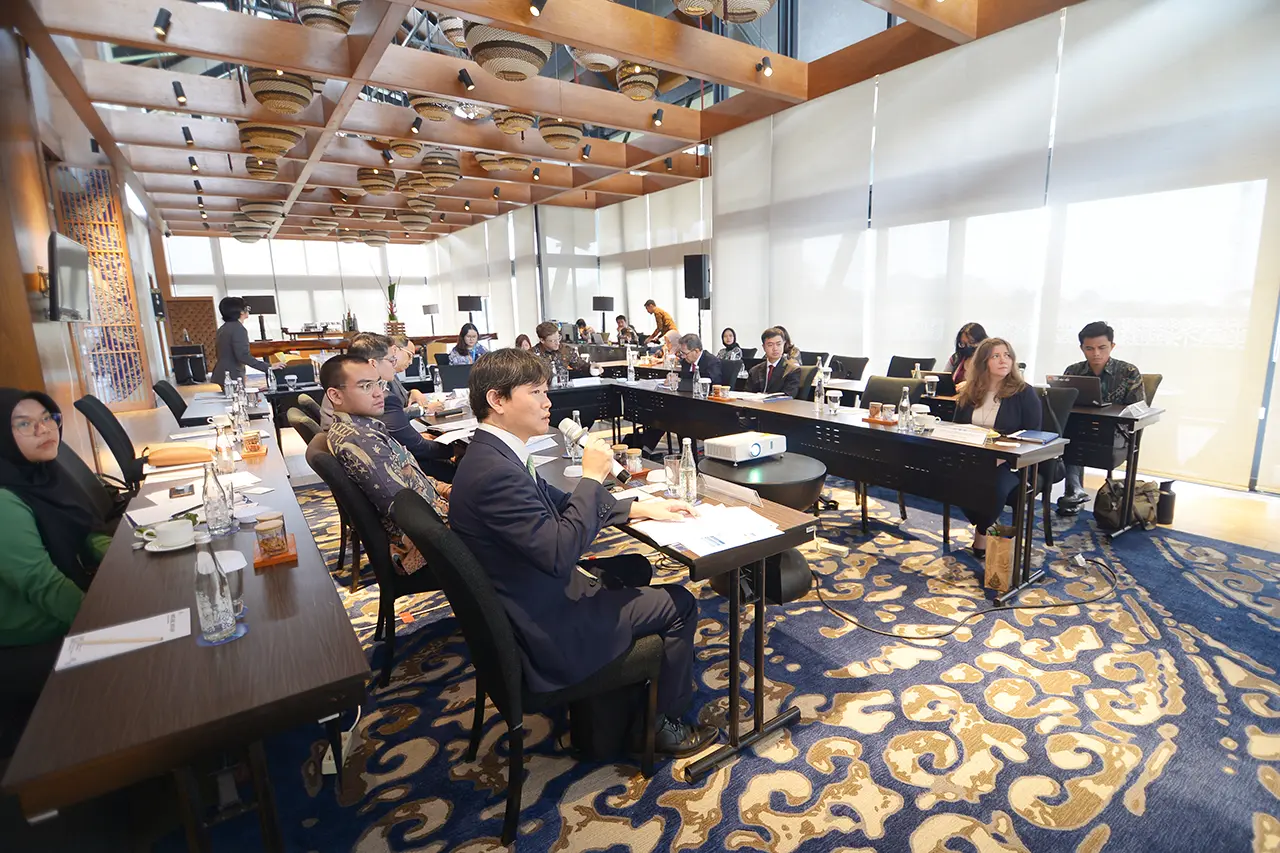On July 6, 2023, the ICCF Group, ASEAN Inter-Parliamentary Assembly (AIPA), and United Nations Conference on Trade and Development (UNCTAD) co-organized a briefing titled "Technology and Innovation Solutions to Address Marine Debris in Southeast Asia" in Bogor, Indonesia, hybridized through the Zoom platform.
On July 6, 2023, the ICCF Group, ASEAN Inter-Parliamentary Assembly (AIPA), and United Nations Conference on Trade and Development (UNCTAD) co-organized a briefing titled "Technology and Innovation Solutions to Address Marine Debris in Southeast Asia" in Bogor, Indonesia, hybridized through the Zoom platform.
The event facilitated rich discussions and insights on the pressing issue of marine debris in Southeast Asia, exploring existing challenges, policy initiatives, and potential solutions. Opening remarks were delivered by Secretary General of AIPA, H.E. Ar. Siti Rozaimeiriyanty Dato Haji Abdul Rahman, and Director of ICCF Asia, Mr. James Ward. Keynote remarks were delivered by Chairperson of the Committee for Interparliamentary Cooperation of the Indonesian Parliament, Hon. Fadli Zon, and Co-Chair of the Oceans Caucus in the Indonesian House of Representatives, Hon. Bobby Rizaldi.
Mr. Zul Hilmi Saidin, Senior Officer of the Environment Division at the ASEAN Secretariat, discussed the broad range of policy initiatives conducted in ASEAN countries and ASEAN areas to combat marine plastic pollution.
The region has implemented several frameworks and plans like the ASEAN Framework for Circular Economy and the Regional Action Plan for Combating Marine Debris. Partnerships with nations like Japan and Norway, as well as entities like the World Bank and UNOPS, have been established to drive reduction efforts. Despite the progress, challenges persist, including lack of upstream coordination, consistent policy and practice for the plastic industry and environmental protection, and implementation of action policies at various levels.
Mr. Reo Kawamura, Director of Resource Knowledge Centre for Marine Plastic Debris Unit at the Economic Research Institute for ASEAN and East Asia (ERIA), addressed the significant contribution of Southeast Asian countries to plastic waste, exacerbated by imports from developed nations. He discussed the role of the Intergovernmental Negotiating Committee (INC) in formulating global solutions, acknowledging the pivotal role of waste pickers and the potential of public-private partnerships in waste management. He also shared best practices from Japan and Southeast Asian countries, including the harmonized PET bottle design in Japan, bans on single-use plastic in Indonesia, the Philippines' Extended Producer Responsibility Act, and Singapore's Deposit Refund Scheme.
Mr. David Jose Vivas Eugui, Chief of Section a.i. at the UN Trade and Development (UNCTAD), presented a detailed exploration into potential strategies to control plastic pollution.
Eugui discussed control measures such as tariffs, bans, quotas, recycling targets, and phasing out fossil fuel subsidies to reduce plastic usage. He advocated for substitutes like natural fibers, agricultural waste, seaweed, glass, aluminum, and bioplastics as alternatives to conventional plastic products. Highlighting an international trade imbalance, Eugui noted that synthetic materials are often favored over natural ones due to tariff discrepancies. To aid policymakers, he showcased an online tool for evaluating environmental impacts of materials. He concluded by advocating for the benefits of plastic alternatives and pledging support for Member States transitioning away from harmful plastics.
During the Intervention Session of AIPA Member Parliaments, Hon. Pehin Orang Kaya Indera Pahlawan Awang Haji Suyoi bin Haji Osman from Brunei Darussalam highlighted efforts such as coastal cleanup campaigns, a marine debris cleanup handbook, and a tax on plastic items. Hon. Putu Supadma Rudana from Indonesia stressed the importance of local wisdom, sustainable alternatives, and a five-point action plan that includes promoting alternatives to plastic and cultivating a recycling culture. Hon. Ravindra Airlangga, also from Indonesia, proposed a green transition resolution, emphasizing reduction of plastic production, behavioral change, enhancing funding mechanisms, and conservation of biodiversity. Hon. Bobby Adhityo Rizaldi posed questions about promoting successful technology and innovation solutions and asked UNCTAD how governments and businesses can collaborate to promote traditional plastic substitutes in developing countries. Finally, Hon. Adm. Chaiwat Iamsamut from Thailand proposed the establishment of a dedicated unit and fund to tackle marine debris in Southeast Asian countries.

 Regional Headquarters
Regional Headquarters